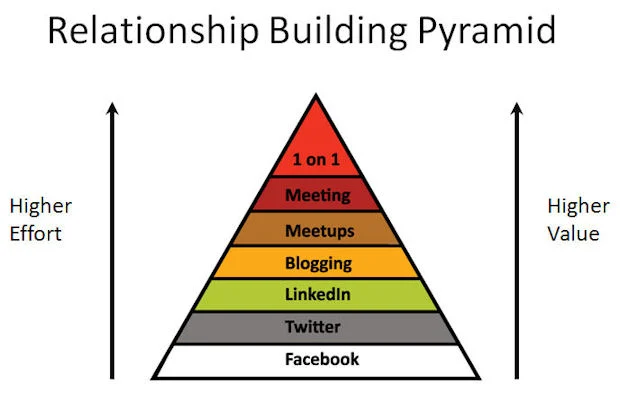
In recent years, growth hacking has become a buzzword in the business world, and it’s easy to see why. By implementing creative and targeted marketing strategies, growth hacking can help businesses achieve rapid growth and success. Real estate is no exception, and with the right approach, growth hacking can help real estate professionals generate leads, boost sales, and expand their business. In this article, we will discuss 35 top growth hacking strategies for real estate that can help you take your business to the next level.
Understanding Growth Hacking in Real Estate
What is Growth Hacking?
Growth hacking is a term that has gained popularity in recent years, but what exactly does it mean? At its core, growth hacking involves experimenting with different marketing strategies and tactics to find the most effective ways to grow your business. It’s all about being creative, data-driven, and focused on achieving growth.
One of the key aspects of growth hacking is the focus on finding scalable solutions that allow businesses to achieve significant growth quickly. This means that growth hacking is often centered around leveraging technology and automation to streamline processes and reach a wider audience.
Why Growth Hacking Matters in Real Estate
Real estate is a highly competitive industry, and standing out from the crowd can be a significant challenge. With growth hacking, however, real estate professionals can gain a competitive edge by reaching more potential clients, generating leads, and boosting sales.
One of the most effective growth hacking strategies in real estate is the use of social media. By creating engaging content and leveraging social media platforms like Facebook, Instagram, and Twitter, real estate professionals can reach a wider audience and build a strong online presence.
Another key growth hacking tactic in real estate is the use of data analytics. By analyzing data on customer behavior, real estate professionals can gain valuable insights into what their clients are looking for and tailor their marketing strategies accordingly. This can lead to more effective targeting and higher conversion rates.
Finally, growth hacking in real estate often involves a focus on providing exceptional customer service. By going above and beyond for their clients, real estate professionals can build a strong reputation and generate positive word-of-mouth referrals, which can be a powerful driver of growth.
In conclusion, growth hacking is a powerful tool for real estate professionals looking to achieve success in a challenging and dynamic industry. By being creative, data-driven, and focused on achieving growth, real estate professionals can gain a competitive edge and take their business to the next level.
Building a Strong Online Presence
In today’s digital age, having a strong online presence is crucial for the success of any real estate business. With so many potential clients turning to the internet to search for their dream home, it’s essential to ensure your online presence is optimized to attract and engage these potential clients.
Optimizing Your Real Estate Website
Your website is the cornerstone of your real estate business’s online presence. It’s where potential clients will go to learn more about your business, view your listings, and ultimately decide whether or not to work with you. To make the most of your website, it’s essential to optimize it for search engines, ensuring it appears high in search engine results pages.
One way to achieve this is through keyword research. By identifying the search terms potential clients are using to find real estate services in your area, you can optimize your website’s content to target those keywords and improve your search engine rankings. Additionally, optimizing your title tags and meta descriptions can help search engines understand what your website is about and show that information to potential clients in search results.
But search engine optimization is only part of the equation. To truly engage potential clients and encourage them to work with you, your website needs to have engaging and informative content that speaks to your target audience. Include high-quality images and videos of your listings, as well as informative blog posts and other resources that can help potential clients navigate the home buying or selling process.
Finally, it’s important to ensure your website is optimized for lead generation. This means including clear calls to action throughout your site, such as contact forms or buttons to schedule a consultation. By making it easy for potential clients to take action, you can turn website visitors into leads and ultimately into clients.
Harnessing the Power of Social Media
Social media is another powerful tool for real estate professionals looking to expand their reach and build their brand. By creating social media profiles and publishing engaging content, real estate professionals can connect with potential clients and showcase their expertise.
But social media isn’t just a platform for sharing content. It can also be a powerful lead generation tool. By running targeted ads and engaging with potential clients on social media, real estate professionals can generate leads and build their client base.

When using social media for lead generation, it’s important to keep your target audience in mind. For example, if you specialize in luxury homes, you may want to target your ads to high-income individuals in your area. Additionally, it’s important to engage with potential clients in a way that feels authentic and not overly salesy. By building relationships with potential clients on social media, you can establish trust and ultimately win their business.
Leveraging Local SEO Strategies
Local search engine optimization (SEO) is another important aspect of building a strong online presence for your real estate business. By optimizing your website and online presence for local search queries, you can ensure your business appears in local search results and attract potential clients in your area.
One way to do this is by targeting local keywords in your website’s content. For example, if you’re a real estate agent in Los Angeles, you may want to target keywords like “Los Angeles real estate” or “homes for sale in Los Angeles.” Additionally, optimizing your business listings on sites like Google My Business can help improve your visibility in local search results.
Finally, building local citations can also help improve your local search rankings. This involves getting your business listed on local directories and other websites, which can signal to search engines that your business is relevant to local search queries.
By taking a comprehensive approach to your online presence, including optimizing your website, harnessing the power of social media, and leveraging local SEO strategies, you can build a strong online presence that attracts and engages potential clients and helps you grow your real estate business.
Content Marketing for Real Estate
Creating Engaging Blog Content
Creating engaging and informative blog content is a powerful way to showcase your expertise and build relationships with potential clients. By publishing blog articles regularly, you can attract visitors to your website, provide value, and encourage them to take action.
When creating blog content, it’s important to ensure it is relevant to your target audience and provides value. In addition, make sure your articles are well-researched and based on data and insights.
Utilizing Video Marketing
Video marketing is a powerful tool for real estate professionals looking to showcase properties and build relationships with potential clients. By creating high-quality property videos and virtual tours, real estate professionals can provide a more immersive and engaging experience for potential clients, ultimately leading to more leads and sales.
Crafting Compelling Property Listings
Creating compelling and informative property listings is essential for generating leads and closing sales in the real estate industry. By including high-quality images and video, detailed property information, and a clear call-to-action, real estate professionals can attract more potential clients and generate more leads.

Email Marketing Strategies
Building Your Email List
An email list is a powerful asset for any business, allowing you to connect with potential clients and nurture relationships over time. To build an email list, offer valuable content and incentives, such as a free guide or e-book, in exchange for email sign-ups.
Segmenting Your Audience
Segmenting your email list can help you personalize your communication and provide more relevant and targeted content to your subscribers. By segmenting based on factors such as location, interests, and behavior, you can send more targeted and effective emails that resonate with your subscribers.
Crafting Effective Email Campaigns
When crafting email campaigns, it’s important to ensure they are engaging, informative, and provide value to your subscribers. Include high-quality images and clear calls-to-action, and make sure your emails are optimized for mobile devices.
In conclusion, growth hacking can be a powerful strategy for real estate professionals looking to achieve rapid growth and success. By being creative, data-driven, and focused on achieving growth, real estate professionals can reach more potential clients, generate leads, and boost sales. By implementing these 35 growth hacking strategies, you can take your real estate business to the next level and achieve success in a highly competitive industry.
